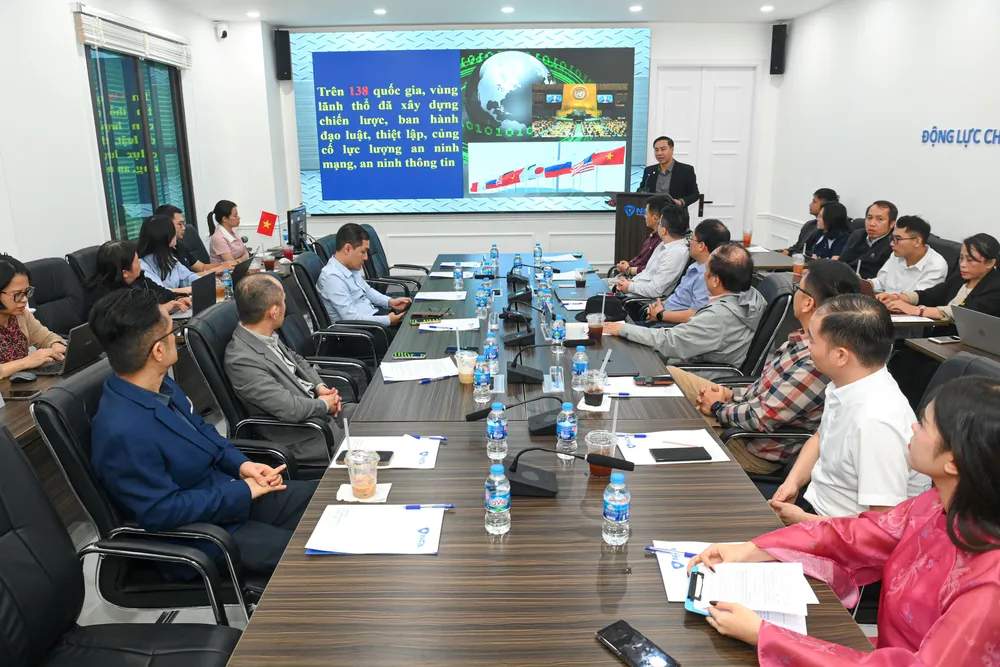
Speaking at the seminar, Lieutenant Colonel Nguyen Dinh Do Thi, Deputy Head of the Cyber Security Department (A05, Ministry of Public Security ) said that currently, dependence on foreign technology is one of three direct threats to national security and social order and safety. Therefore, the State aims to encourage the development of autonomous capacity in cyber security technology, especially in the production and testing of digital devices and network services and network applications.

Associate Professor Dr. Nguyen Ai Viet, Director of the Institute of Technology and New Intelligence Education , believes that in the long term, autonomous products are extremely important. In addition to increasing the budget, training to raise awareness of cybersecurity for leaders of large corporations, companies, organizations with sensitive data and especially banks, there should be a policy requiring organizations to have cybersecurity policies including cybersecurity architecture. In this architecture, any solution must have a domestic defense layer. Although not as strong as imported solutions, it will overcome the weaknesses of foreign defense layers.

From a business perspective, Mr. Tran Quoc Chinh, Vice Chairman of CMC Group, General Director of CMC Cyber Security, said that it is necessary to soon issue standards, technical regulations and a set of criteria for evaluating and ranking national cybersecurity. Along with the law, it is necessary to simultaneously issue national technical standards and regulations (TCVN, QCVN) for each group of cybersecurity products and services. This creates a legal basis for testing, certification of conformity/regulation, inspection and assessment of systems before putting them into operation.

Mr. Nguyen Minh Duc, Chairman of the Cyber Security Services Club and CEO of CyRadar Company, believes that the Cyber Security Law 2025 is not only a tool to protect digital sovereignty but also an economic driving force for Vietnamese cybersecurity enterprises.
The bill sets out a policy of prioritizing the use of domestic products and services, establishing cybersecurity as a strategic industry and orienting the market for domestic enterprises. At the same time, it stipulates that the budget for cybersecurity protection at state agencies must reach at least 10% of the total budget for information technology projects.
In addition, the bill also creates conditions to encourage research and development (R&D), enhancing autonomy from product and solution manufacturing to service provision, aiming to build a stronger, more creative and autonomous Vietnamese cybersecurity community.

According to Mr. Vu Ngoc Son, Head of the NCA Research, Consulting, Technology Development and International Cooperation Department, the draft Law on Cyber Security 2025 is a big step forward for Vietnam in building a legal system to protect cyberspace - a space that is increasingly having a profound impact on all aspects of economic and social life. Once passed, the draft law will create a modern, unified, flexible legal framework, consistent with international practices and trends, thereby enhancing defense capacity, ensuring data security and digital sovereignty against cyber threats; reducing dependence on foreign technology, promoting national cybersecurity technology autonomy; paving the way for Vietnam's cybersecurity ecosystem and industry to develop more strongly.
Source: https://www.sggp.org.vn/thuc-day-nang-luc-tu-chu-cong-nghe-trong-linh-vuc-an-ninh-mang-post823944.html




![[Photo] General Secretary To Lam and National Assembly Chairman Tran Thanh Man attend the 80th Anniversary of the Traditional Day of the Vietnamese Inspection Sector](https://vphoto.vietnam.vn/thumb/1200x675/vietnam/resource/IMAGE/2025/11/17/1763356362984_a2-bnd-7940-3561-jpg.webp)



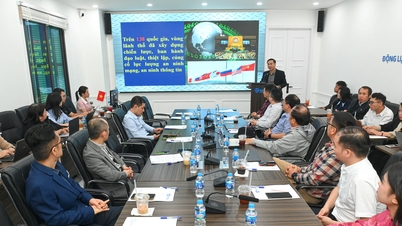

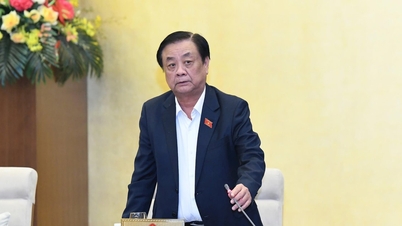





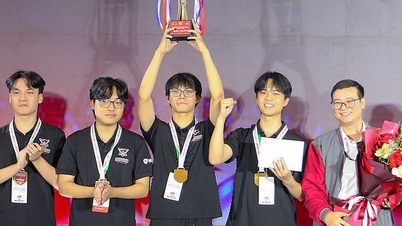










































































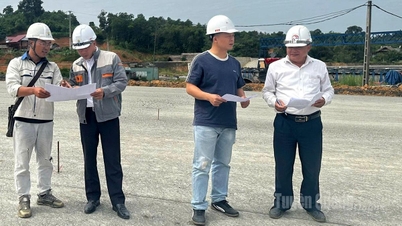

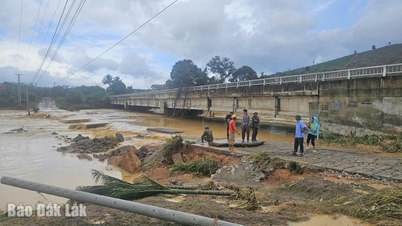



















Comment (0)